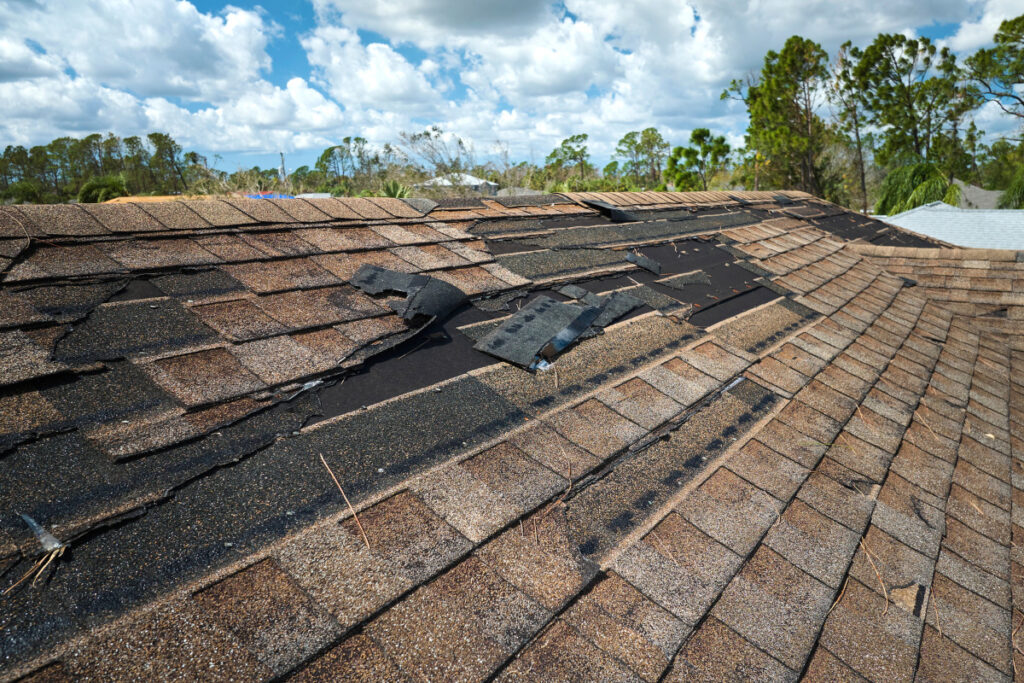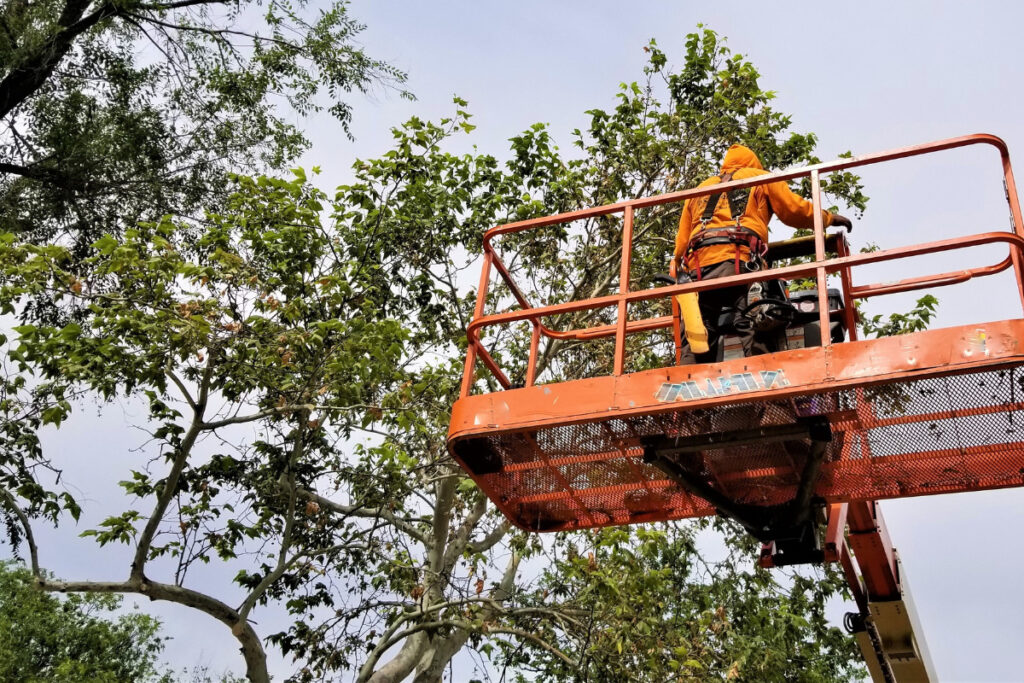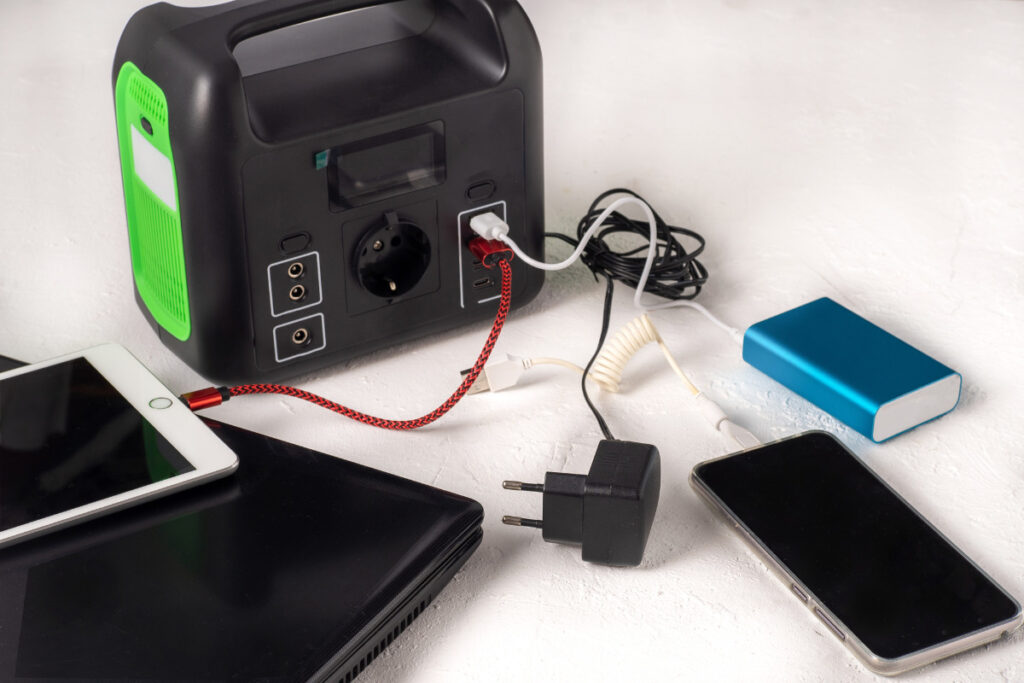Introduction
Power outages during severe weather can be a stressful and potentially dangerous experience. Being prepared and informed is crucial for safety and comfort, whether it’s a winter storm, hurricane, or sudden power failure. This blog post offers essential tips for surviving power outages during severe weather. It covers emergency preparedness and staying warm in freezing temperatures.
| Key Takeaways |
|---|
| Prepare an emergency kit with essential supplies like flashlights, non-perishable food, and water to ensure safety and comfort during power outages caused by severe weather. |
| Use heating sources safely to avoid carbon monoxide poisoning, keep freezers closed to preserve food longer, and have a backup power source in case of prolonged outages. |
| Do not touch downed power lines or use generators indoors, as these can be extremely dangerous and even deadly. |
| Keep a first aid kit on hand, along with updated emergency phone numbers for local police and healthcare providers, in case of emergencies during power outages due to severe weather events. |
Preparing For Power Outages
Create an emergency kit containing flashlights, candles, non-perishable food, water, and other necessary supplies.
Create An Emergency Kit
An emergency kit is essential in preparing for power outages during severe weather. This kit should include the following items to ensure the safety and comfort of your household:
- Flashlights with extra batteries – Choose bright, energy-efficient LED flashlights for longer battery life.
- Battery-powered or hand-crank radio will enable you to stay informed about weather updates and emergencies.
- First aid kit – Include bandages, antiseptic wipes, pain relievers, and necessary prescription medications.
- Non-perishable food – Stock up on canned goods, dried fruit, granola bars, and items that do not require refrigeration or cooking.
- Water – Store at least one gallon of water per person daily, with a minimum three-day supply for each household member.
- Manual can opener – Essential for accessing canned food supplies without electricity.
- Warm blankets – Ensure everyone has a warm blanket to help retain heat in case your heating source fails during the outage.
- Extra clothing layers – Have additional layers of clothing readily available to stay warm during prolonged power outages in cold weather.
- Solar or battery-powered cell phone charger – Keep your communication devices charged even when the power is out.
- Cash and important documents – In case you need to evacuate or make purchases during a power outage.
By having these essential items ready and easily accessible, you can better endure a power outage during severe weather conditions while ensuring the safety of yourself and your loved ones.
Secure Outdoor Items And Trim Trees
Before a severe weather event, securing outdoor items and trimming trees or branches that could cause damage during high winds is important. Loose lawn furniture, gardening tools, and children’s toys can become dangerous projectiles if not correctly stored.
Trim any overhanging tree branches near your home or power lines to avoid possible power outages from fallen trees. It’s also important to ensure that your gutters are clear of debris, as this can cause water damage in heavy rain or snow.
Have A Backup Power Source
In the event of a power outage caused by severe weather, having a backup power source can provide much-needed relief from the inconvenience and discomfort that comes with being without electricity.
There are various options for backup power sources, including portable generators powered by gasoline or propane, solar-powered generators, and battery backup systems that can be charged in advance and used to facilitate necessary electronic devices like phones or laptops.
Make sure to have your backup power source inspected by a professional before using it in an emergency to avoid any potential safety hazards. Additionally, ensure you have enough fuel or energy stored up in case of prolonged outages common during severe winter weather conditions.
Stock Up On Non-perishable Food
One of the most critical aspects of preparing for a power outage is ensuring enough food to last until the electricity comes back on. Be sure to stock up on non-perishable items that don’t require refrigeration, such as canned goods, cereal, and dried fruits.
Investing in a portable propane or charcoal grill is also a good idea to cook hot meals if necessary.
It’s recommended that you set aside at least 3 days’ worth of food per person in emergency storage in case of a power outage. Remember that power may take longer to restore during winter storms or other severe weather events.
Surviving A Power Outage
To survive a power outage, it is essential to preserve food and water, stay warm or cool, use electronic devices wisely, and avoid carbon monoxide poisoning – read on for more tips!
Preserve Food And Water
During a power outage, it’s important to ensure that you have access to safe drinking water and food that won’t spoil. Here are some tips for preserving food and water during a power outage:
- Keep the refrigerator and freezer doors closed as much as possible to prevent food from spoiling.
- Use perishable items first, then move on to non-perishables like canned goods or dry goods that don’t need refrigeration.
- If available, use coolers with ice or frozen gel packs to keep essential items cold.
- Store water in clean containers such as jugs or plastic bottles, ensuring enough for everyone in your household for at least 3 days.
- Boil tap water for at least one minute before consuming it if you suspect it may be contaminated due to the power outage.
- If you’re unsure whether food is safe after a prolonged power outage, discard it to avoid the risk of food poisoning.
By following these tips and being prepared, you can ensure that you and your family can access safe drinking water and food during a power outage caused by severe weather or other emergencies.
Stay Warm/cool
Stay safe and comfortable in your home during a power outage. Consider layering up with warm clothing and blankets to stay warm without electricity. It can quickly become chilly inside if you lose power during winter.
Avoid using gas stoves for heating, as this can lead to carbon monoxide poisoning, which is highly dangerous.
On the flip side, if you experience a power outage during hot summer months, staying cool is essential too. Be sure to keep doors and windows open for airflow but ensure that safety measures are taken to avoid unnecessary accidents, especially when kids are around or pets roaming about in the house.
Regardless of what season you’re dealing with when experiencing a power failure, taking precautions such as dressing appropriately for indoor temperature changes while minimizing the use of appliances that generate heat helps avoid additional health risks, particularly for vulnerable people such as children or elderly who might suffer from hypothermia or hyperthermia respectively due to extreme temperatures indoors caused by power outages.
Use Electronic Devices Wisely
When facing a power outage, it is crucial to use electronic devices wisely. Reserve device usage for important communication or emergencies only to preserve battery life.
Turn off your smartphone’s Wi-Fi and Bluetooth connections to save battery life.
Another thing to remember is that surge protectors don’t provide uninterrupted battery backup during an extended power failure. Be sure not to overuse them and have extra batteries for flashlights or other emergency devices instead.
It’s easy to get carried away with trying to stay connected with family and friends through social media or excessive use of electronic entertainment like Netflix during prolonged outages- but remember, these activities drain precious limited resources quickly! Use all tech conservatively if possible so they’ll last longer when needed most – especially since cell towers may be down too!
Avoid Carbon Monoxide Poisoning
Carbon monoxide poisoning is a genuine concern during power outages. Using gas stoves or charcoal grills to stay warm inside can lead to carbon monoxide building up in your home, leading to sickness and even death. This gas is odorless and invisible, making it impossible to detect without special devices.
Another way to prevent carbon monoxide poisoning during power outages is by adequately maintaining generators. Only use generators outside and away from windows, as the fumes are hazardous in enclosed spaces.
It’s also vital to keep a working carbon monoxide detector on hand during winter storms when power outages are more likely to occur. It will alert you if levels of this toxic gas become too high in your home so that you can evacuate quickly before getting sick.
Safety Precautions During Power Outages
Keep a first aid kit and emergency phone numbers on hand, and never touch downed power lines or use generators indoors to prevent carbon monoxide poisoning.
Keep A First Aid Kit And Emergency Phone Numbers On Hand
Preparing for emergencies, including power outages during severe weather, is essential. One way to ensure you’re ready is by keeping a first aid kit and emergency phone numbers on hand. Here are some tips:
- First Aid Kit: A basic kit should include band-aids, gauze, antiseptic wipes, adhesive tape, scissors, tweezers, and necessary medications like allergy medication or pain relief.
- Emergency Phone Numbers: Make sure you have a list of emergency phone numbers ready, including local police, fire department, and hospital contacts.
- Medical Information: If anyone in your household has a medical condition or takes prescription medications, keep their information handy.
- Updated Contacts: Ensure that the phone numbers on your emergency contact list are up-to-date.
- Accessibility: Keep the first aid kit and emergency phone numbers easily accessible in an emergency.
Taking these steps and having an emergency plan can help you handle power outages confidently and ensure you’re prepared for whatever comes your way.
Do Not Touch Downed Power Lines
One of the most important things to remember during a power outage caused by severe weather is never to touch downed power lines. Fallen electrical wires can be hazardous, even deadly, and should only be handled by trained professionals.
If you come across a downed power line, keep it at least 10 feet away and immediately call your local utility company or emergency services. Never attempt to move fallen wires or debris in contact with them, as they could still be energized and pose a significant risk of electrocution.
You can take several key safety precautions during a power outage caused by severe weather. These include having a first aid kit on hand and avoiding gas stoves or other unsafe heating sources, like kerosene heaters, to prevent carbon monoxide poisoning.
You must also have backup food, water, and medication supplies in case of an extended outage.
Use Generators Safely And Only Outdoors
When using a generator during a power outage, it’s essential to follow safety guidelines to prevent accidents or even fatalities. Always make sure your generator is installed correctly and maintained before use.
Keeping the generator dry is also critical by placing it on a dry surface under an open canopy-like structure. Do not touch the generator with wet hands, and ensure that cords are rated for outdoor use and free of damage or wear.
Monitor Carbon Monoxide Levels
Carbon monoxide is an odorless, colorless gas that can be deadly if inhaled in high doses. During a power outage, people may use generators or other fuel-burning devices for heating and electricity.
These items emit carbon monoxide, which can build up indoors and pose a serious risk to health and safety. Installing and maintaining carbon monoxide detectors throughout the home, especially near sleeping areas, is important.
Check these detectors regularly to ensure they work correctly, and replace batteries as needed. In addition, never use generators or other fuel-burning devices indoors or near windows where the exhaust fumes could enter the house.
Dealing With Prolonged Power Outages
If the power outage continues for an extended period, it’s important to consider alternatives such as seeking shelter in a community center or friend’s home, using caution with alternate heating sources, and checking for damage after the weather has passed.
Seek Shelter In A Community Center Or Friend’s Home
If the power outage lasts an extended period, seeking shelter in a community center or a friend’s home may be necessary. Community centers often offer warmth, food, and water to those affected by power outages during severe weather.
It’s important to have your emergency kit when seeking shelter outside your home. This should include warm clothes, non-perishable food and drinks, flashlights with extra batteries, and communication devices such as radios or cell phones.
When planning ahead for potential power outages, consider contacting friends who live in areas where severe weather is less likely so that they can serve as a haven for you during times of need.
Consider A Generator Or Solar Power System
If power outages are frequent or you live in a severe weather-prone area, consider investing in a generator or solar power system. A backup generator can provide electricity during an outage and keep essential appliances running, like your refrigerator or heating source.
Alternatively, solar panels offer a sustainable option by harnessing energy from the sun and converting it into electricity for your home. Though installation costs are initially high, they can save on energy bills in the long term and provide a reliable backup power source during outages.
Consider adding extra battery storage capacity to maximize efficiency during winter storms when sunlight may be limited.
Use Caution When Using Alternative Heating Sources
Using alternative heating sources such as gas stoves or portable heaters is tempting during a power outage. However, these can be dangerous if not used properly. Gas stoves should never be used for heat as they release carbon monoxide, which is odorless and deadly when inhaled in large amounts.
If you use a portable heater, ensure an automatic shut-off switch activates if the device tips over.
It’s important to note that 60% of home heating fire deaths are caused by misusing space heaters. So always read the manufacturer’s instructions before using them and follow them carefully to stay safe during a power outage.

Check For Damage After The Power Outage
After a power outage, it’s essential to check for any damage that may have occurred. Here are some steps to follow:
- Look for fallen trees or branches to ensure they function on your property or impact nearby power lines.
- Check your home for any water damage or leaks that may have occurred during the outage.
- Test your electronic devices and appliances to make sure they are functioning correctly.
- Inspect your generator, if you have one, to ensure it is still in good working condition.
- Monitor food in refrigerators and freezers to ensure they remain at safe temperatures during the outage.
- Assess the state of any heating sources used during the power outage to ensure they did not cause any damage or pose a safety risk.
By taking these steps after a power outage, you can make sure your property and appliances are in good condition and identify any necessary repairs or replacements. It’s always better to be safe than sorry about severe weather-related power outages.
Conclusion
Take action now to prepare for power outages during severe weather and ensure your safety and comfort. Create an emergency kit with essential supplies such as non-perishable food, water, flashlights, and batteries. Safely use heating sources and keep freezers closed to avoid carbon monoxide poisoning and preserve food. It’s also crucial to have a backup power source for prolonged outages.
If you’re considering installing solar panels to avoid power outages in severe weather, DroneQuote can assist you. With their expertise, you can explore the benefits of solar power and get a personalized quote for your home. Don’t wait until it’s too late – be proactive and ready to handle whatever challenges Mother Nature throws your way during power outages in severe weather.

FAQs
- How can I prepare for a power outage during severe weather?
To prepare for a power outage, it’s important to have an emergency kit on-hand. This includes flashlights, batteries, non-perishable food, and water. Consider investing in a generator or alternative power source. Additionally, ensure your cell phone is fully charged.
- What should I do if my home loses power during severe weather?
If your home loses power during severe weather, stay calm and focus on staying warm and dry. Close unused rooms to conserve heat, and use blankets or sleeping bags to keep cozy. If you need help, contact your local authorities or emergency services.
- How long will my food remain safe during a power outage?
Unopened refrigerated foods will generally remain safe for up to four hours after power loss. Meanwhile, freezer contents may last between 24-48 hours. Although this depends upon the number of items stored inside the unit, insulation & temperature outside.
- When should I contact my utility company about a prolonged power outage?
If your home has been without electricity for over 24 hours, report it immediately to schedule repairs. Regardless of other homes’ situations, monitoring social media and local news can provide information. This information pertains to electric companies’ efforts to resolve community-wide outages caused by environmental factors such as high winds and flooding.



